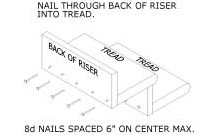Reading Simple Church by Rainer and Geiger, I was arrested by the power of one more shift, essential to the many churches with which I work. That shift is from programs to process.
In the ‘80’s and ‘90’s, churches often grew by offering programs to address the perceived felt-needs of baby-boomers.
The more the merrier.
Churches functioned as program purveyors, and boomers responded by posturing as consumers of the religious goods and services we offered. The most successful paved expansive parking lots and constructed enormous facilities where the insatiable thirst for programming was met with unprecedented creativity and excellence.
I served in a church like that. Laboring to make sure my programs were best attended. Having the highest visibility possible. Developing the leaders in my silo to minister with greater effectiveness to meet needs of our people.
There were eleven pastors on staff, each with our pet programs and ministries. Each competing with the others for the allegiance and participation of the congregation. What was the common goal to which we all did what we did? I don’t know. Maybe, none of us did.
Simple Church challenged me to consider a single, simple, streamlined process to make mature disciples. A process focused on movement. Movement along a path to maturity. If the key is movement, then we have to develop a means to actually move people from step to step.
Think of it this way: in a staircase, the builder constructs both the “tread” and the “riser”.

If the tread (where you step) represents the programs, say: Alpha, followed by Faith Basics, which is then followed by Gifts Discovery, the riser is the route people traverse in moving from one step in the discipleship process to the next.
Rainer and Geiger note that we must pay as much attention to the design of the pathways between the steps on the disciple-maturing journey as we do to the steps themselves. Imagine working just as hard on how guests transition into Alpha as you do to the design and preparation of the Alpha Course itself!
Now, you’re beginning to think process.
Let’s say your church is committed to small groups, as mine is. How exactly do people get from the New Members’ Class or Alpha Course into a small group? In most churches, the newcomers must take all the initiative themselves…and very few do.
Thinking process, you’ll make sure your small group hosts or leaders will have a visible role in the New Believer’s process. How else will participants make the transition from one to the other?
When you think process, you’re captivated by the challenge to facilitate movement. What, in the intentional design of your small group experience moves participants to greater maturity?
What experiences?
What exposures?
What learning?
What practice?
When you decide that you’re in the people-development business, and not in the religious entertainment and information business these considerations will be obvious and important.
Pastor, what means do you provide to make mature disciples?
Or, are you in the religious information and entertainment business?
My privilege is to walk with dozens of pastors who are courageously moving their churches from the religious information and entertainment business to the business of developing maturing, ministering Christ-followers.
How ‘bout you?